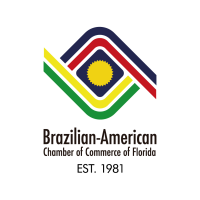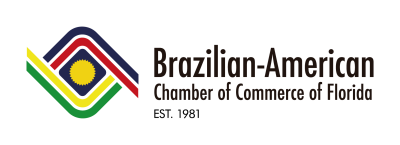June 26, 2019

The South American customs pact Mercosur and the EU are “very close” to a far-reaching free trade accord, Brazil’s foreign minister said, a deal that would serve as a powerful counterpoint to growing tensions in global trade.
“We are very close to closing the deal with the European Union,” Ernesto Araújo told the Financial Times, saying there was a “political drive we haven’t seen in a long time”. A deal could be signed as early as July, he said.
“We are fixing the dates for a meeting in June. Of course, one always has to be prudent because you never know,” he said, adding that the issues were complex. “But there is a very clear, a very positive disposition from the European Union and from our side.”
After two decades of talks, the two sides have agreed to most of the chapters in an accord that, if concluded, would be the largest ever negotiated by the EU in terms of tariff reductions.
However, the European side has sounded a note of caution on a deal, saying there was much work to be done.
Jean-Claude Juncker, the president of the European Commission, told Politico last week that talks on the Mercosur deal were “difficult”. “I am not optimistic, but I am not pessimistic,” he said.
The negotiations stray into deeply sensitive political territory for both sides, including the prospect of greater competition for Europe’s beef farmers and for Mercosur’s car manufacturers.
There has also been recurrent frustration on the EU side about a perceived lack of co-ordination between the Mercosur countries, whose full members are the agricultural powerhouses of Argentina, Brazil, Paraguay and Uruguay. This was partly blamed for the failure of a push to secure a deal last year.
An EU official said Brazil president Jair Bolsonaro’s recent statements on the importance of a deal were welcome, but that talks were still at a technical stage, with further work to do.
A handful of mainly agricultural issues — including how best to handle sanitary controls, denominations of origin for produce, and export quotas on sugar and beef — remain to be closed.
“We will get something very soon,” said a senior Brazilian trade official. A senior European diplomat in Brasília echoed that the “mood music” in Brussels was “strongly behind completing a deal this month or the next”. Both sides are keen to push ahead before the potential election of a leftwing populist government in Argentina and the arrival of new commissioners in Europe, both scheduled for October.
If finally approved, the accord could cover everything from goods to the services market to public procurement. A deal between the EU and the world’s fourth-largest trade bloc would follow agreements with Japan and Canada. However, in terms of the value of tariffs abolished it would be worth four times more than those two agreements put together, European officials said.
Moreover, it would provide a rare moment of agreement in global trade at a time when US president Donald Trump continues to ratchet up tensions with China and Mexico. Analysts say an agreement with Mercosur has extra significance as the EU seeks to frame itself as a leading proponent of global free trade in contrast to Mr Trump’s protectionism.
A deal with the EU would be the first trade pact signed by Mercosur outside the region since it was formed in the early 1990s. It would also represent a step forward for Brazil and Argentina in efforts to open up their insular economies. It would be a big win for the governments of Mauricio Macri and Mr Bolsonaro, who are presiding over faltering economies marred by economic policy paralysis.
Cecilia Malmstrom, the EU’s chief trade negotiator, said this week that, despite “some complicated matters” pending, “there is a window now to close this” before the new European Commission takes over.
She was reluctant to specify a deadline, but said: “I will absolutely do my utmost. This is priority number one right now.”
“Showing to the world right now that the EU and that part of Latin America . . . are ready to do a trade agreement will be an extremely powerful signal,” said Ms Malmstrom.
Andres Schipani and Bryan Harris in Brasília, and Jim Brunsden in Brussels
Additional reporting by Benedict Mander in Buenos Aires
Source: Financial Times
“We are very close to closing the deal with the European Union,” Ernesto Araújo told the Financial Times, saying there was a “political drive we haven’t seen in a long time”. A deal could be signed as early as July, he said.
“We are fixing the dates for a meeting in June. Of course, one always has to be prudent because you never know,” he said, adding that the issues were complex. “But there is a very clear, a very positive disposition from the European Union and from our side.”
After two decades of talks, the two sides have agreed to most of the chapters in an accord that, if concluded, would be the largest ever negotiated by the EU in terms of tariff reductions.
However, the European side has sounded a note of caution on a deal, saying there was much work to be done.
Jean-Claude Juncker, the president of the European Commission, told Politico last week that talks on the Mercosur deal were “difficult”. “I am not optimistic, but I am not pessimistic,” he said.
The negotiations stray into deeply sensitive political territory for both sides, including the prospect of greater competition for Europe’s beef farmers and for Mercosur’s car manufacturers.
There has also been recurrent frustration on the EU side about a perceived lack of co-ordination between the Mercosur countries, whose full members are the agricultural powerhouses of Argentina, Brazil, Paraguay and Uruguay. This was partly blamed for the failure of a push to secure a deal last year.
An EU official said Brazil president Jair Bolsonaro’s recent statements on the importance of a deal were welcome, but that talks were still at a technical stage, with further work to do.
A handful of mainly agricultural issues — including how best to handle sanitary controls, denominations of origin for produce, and export quotas on sugar and beef — remain to be closed.
“We will get something very soon,” said a senior Brazilian trade official. A senior European diplomat in Brasília echoed that the “mood music” in Brussels was “strongly behind completing a deal this month or the next”. Both sides are keen to push ahead before the potential election of a leftwing populist government in Argentina and the arrival of new commissioners in Europe, both scheduled for October.
If finally approved, the accord could cover everything from goods to the services market to public procurement. A deal between the EU and the world’s fourth-largest trade bloc would follow agreements with Japan and Canada. However, in terms of the value of tariffs abolished it would be worth four times more than those two agreements put together, European officials said.
Moreover, it would provide a rare moment of agreement in global trade at a time when US president Donald Trump continues to ratchet up tensions with China and Mexico. Analysts say an agreement with Mercosur has extra significance as the EU seeks to frame itself as a leading proponent of global free trade in contrast to Mr Trump’s protectionism.
A deal with the EU would be the first trade pact signed by Mercosur outside the region since it was formed in the early 1990s. It would also represent a step forward for Brazil and Argentina in efforts to open up their insular economies. It would be a big win for the governments of Mauricio Macri and Mr Bolsonaro, who are presiding over faltering economies marred by economic policy paralysis.
Cecilia Malmstrom, the EU’s chief trade negotiator, said this week that, despite “some complicated matters” pending, “there is a window now to close this” before the new European Commission takes over.
She was reluctant to specify a deadline, but said: “I will absolutely do my utmost. This is priority number one right now.”
“Showing to the world right now that the EU and that part of Latin America . . . are ready to do a trade agreement will be an extremely powerful signal,” said Ms Malmstrom.
Andres Schipani and Bryan Harris in Brasília, and Jim Brunsden in Brussels
Additional reporting by Benedict Mander in Buenos Aires
Source: Financial Times

